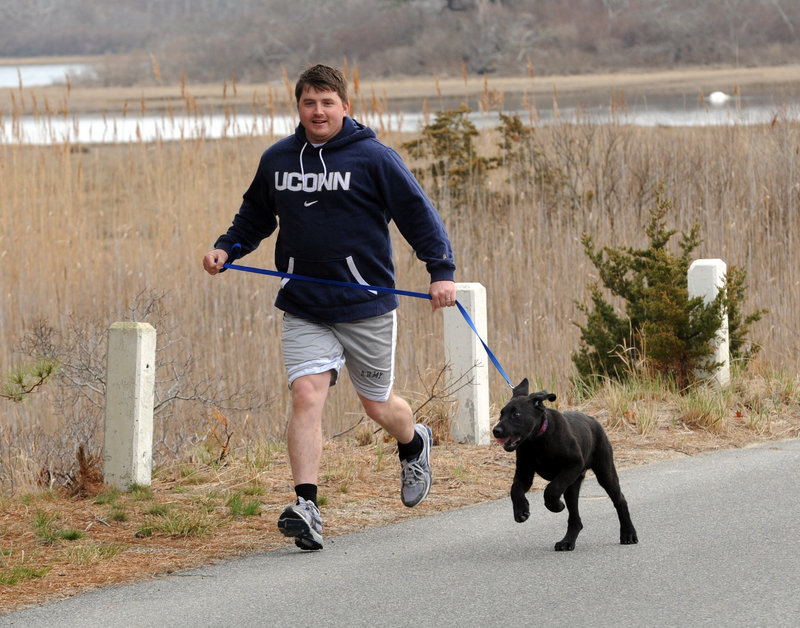MASHPEE, Mass. – When Jim Manning returned from Iraq as an Army medic in 2009, getting back into daily life without a commanding officer barking orders was tough.
In the Army, his nickname was “Doc.” He was a sergeant, an important cog in his unit for four years. He also received the Bronze Star for valor in an incident that involved members of his infantry unit getting wounded or killed by an improvised explosive device they encountered on Christmas Day in 2006.
But when he returned to the Cape, he was cutting grass, trying to find a job in a difficult economy and attempting to unravel whatever benefits he might be entitled to as a veteran.
“When you get out, no one knows who you are and who you’ve been,” Manning said. “I didn’t feel important like I was in the Army. You go through a whole identity crisis.”
Not to mention things he saw, such as the Christmas Day bombing, he’d like to forget.
“When you go into the supermarket or into work or into school, it’s safe to say people have not experienced what you’ve experienced,” Manning said.
He remembers calling a friend four months after he was home.
“I was really frustrated and, I would say, depressed, having a hard time,” Manning said. “He asked me how long I’d been out and when I told him four months, he said, ‘You’re right on track; you’re in the middle of the suckiest part.”‘
Two years later, Manning, 31, is doing much better. He purchased a house in Mashpee where he lives with his wife, Marla, a Spanish teacher at Mashpee High School, and their three dogs. He got a job as a medical assistant at the Veterans Administration health clinic in Hyannis and in a few weeks is going back to school full time at MGH Institute for Health Professions in Boston to become a nurse.
Along the way, he found help from Heroes in Transition, a nonprofit support group started by the Mashpee parents of Capt. Eric Jones, a Marine pilot killed in a helicopter crash in Afghanistan in October 2009.
The group, started in January, meets every other week in donated space at Cape Cod Community College and is facilitated by therapists Pamela Brighton and Freda Diamond. It usually includes four to six former soldiers in varying states of transition.
The former soldiers often suffer from anxiety, depression and sleeplessness, Diamond said.
“There’s a feeling of loss of a sense of purpose and a loss of fellow soldiers,” she said.
Kenneth Jones, Eric’s father, said he’s pleased with Manning’s effort to rally troops to the meetings.
“We were impressed with his ability to reach out to other veterans to attend the support group and that’s a key to the success of this program,” he said.
This week, Manning is taking it a step further. He’s running with a team of 12 other men and women in the third annual American Odyssey Relay Run Adventure, a race from Gettysburg, Pa., to Washington, D.C.
For his part, Manning will raise money for the group he’s come to rely on.
“All the money he raises, we will earmark toward continuing that support group,” Jones said.
Send questions/comments to the editors.



Success. Please wait for the page to reload. If the page does not reload within 5 seconds, please refresh the page.
Enter your email and password to access comments.
Hi, to comment on stories you must . This profile is in addition to your subscription and website login.
Already have a commenting profile? .
Invalid username/password.
Please check your email to confirm and complete your registration.
Only subscribers are eligible to post comments. Please subscribe or login first for digital access. Here’s why.
Use the form below to reset your password. When you've submitted your account email, we will send an email with a reset code.